Nibali: Tactics, rivalry and how he'll win the Giro d'Italia
Giro d'Italia Countdown: 10 days to go!
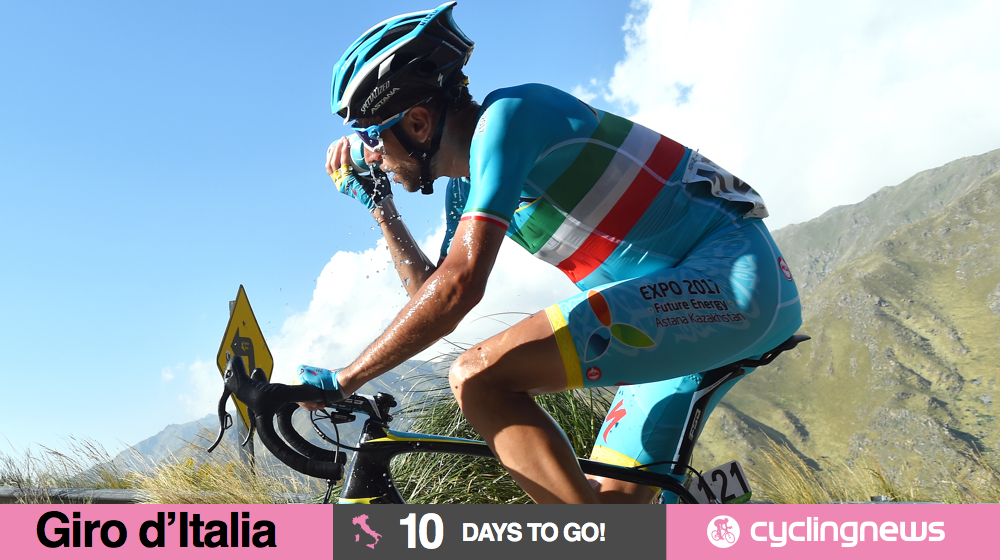
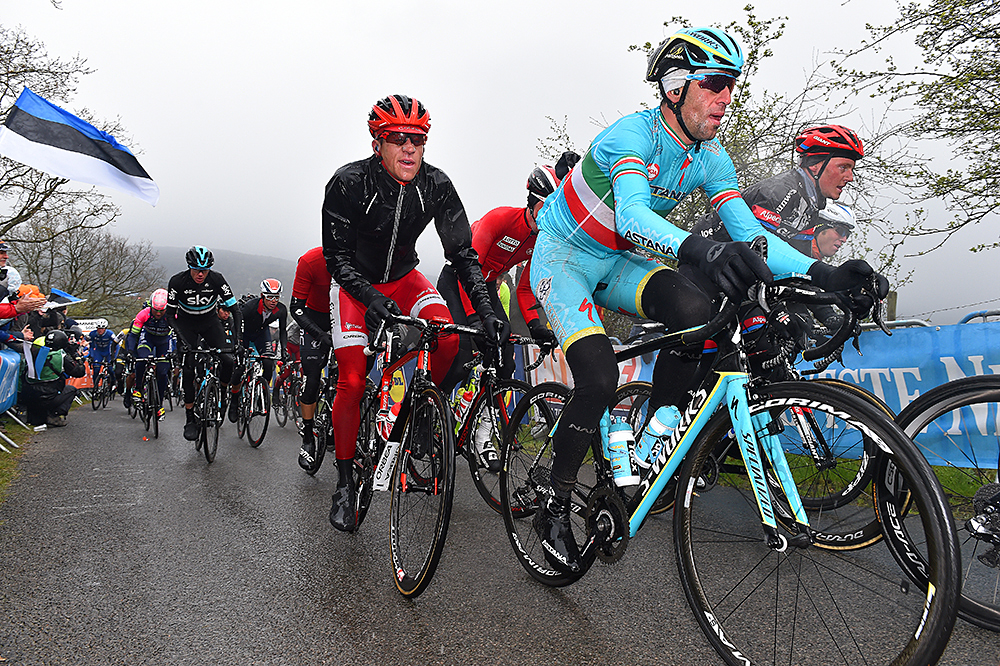
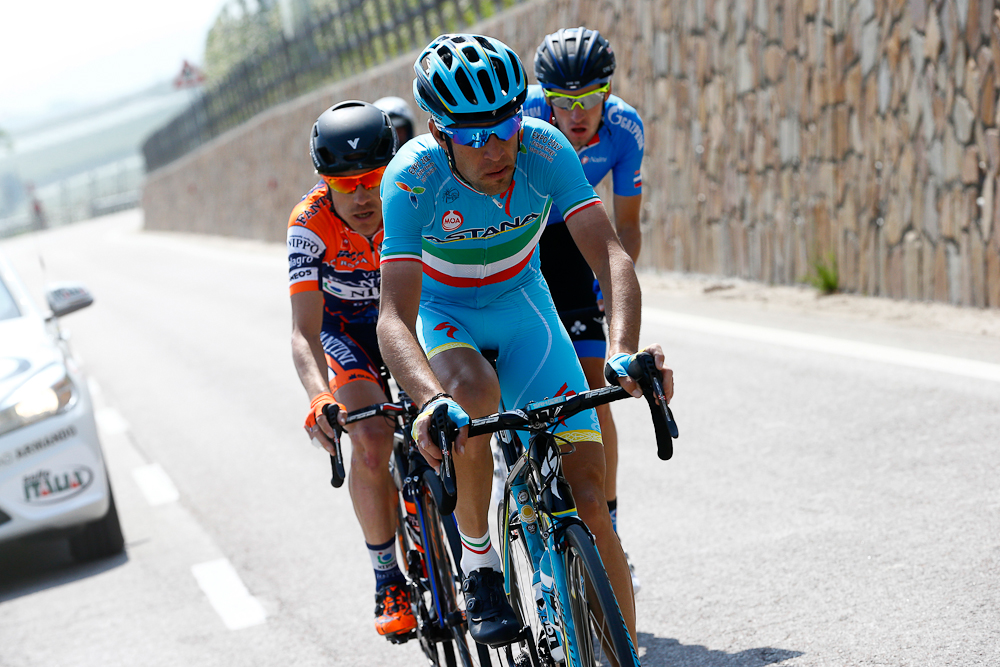
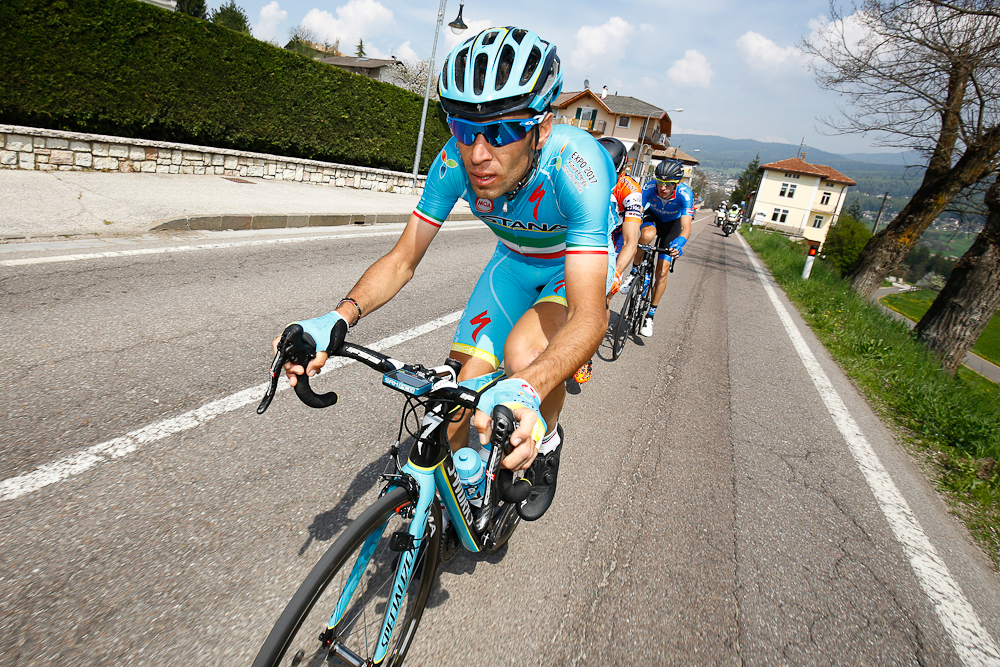
This feature appeared in the May issue of Pro Cycling Magazine.
Victory at the 2014 Tour de France was the crowning moment of Vincenzo Nibali’s cycling life but the year that followed was the most trying of his career, as he struggled with form, dealt with strife on his team and was expelled from the Vuelta a España. Though he ended the year with a redemptive win at the Tour of Lombardy, the pressure hasn’t abated for 2016.
Vincenzo Nibali had spent a week navel-gazing at his villa in Lugano but he felt the need to journey south. He called his father, Salvatore. “I’m flying down,” he said. “Take some time off work, you can follow me with the scooter.”
For the next 10 days, father would motorpace son on training rides in the hinterland of Messina. It was early September, the beginning of Sicily’s lonesome season. Each day, the beaches at places such as Ganzirri and Giardini Naxos were a little more empty. Each evening, the amber sun dipped a little sooner. The holidays were over.
Nibali left Sicily in his mid-teens to pursue his cycling career, and he normally returns twice a year, rarely during the season and never at length. But right then, there seemed no better place to ride the anger and the embarrassment out of his system. His exclusion from the Vuelta a España for hanging onto a team car at 70kph as he chased back on after a crash had seemed the final, undignified act of an ill-starred season. A year to be expunged.
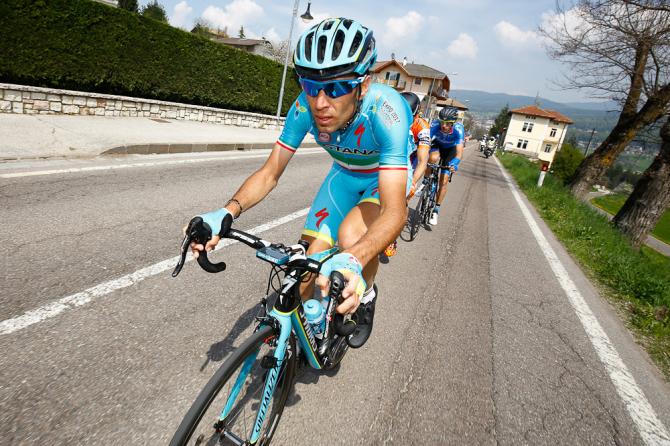
(Bettini Photo)
The spring had been marred by uncertainty over Astana’s WorldTour license and concerns over Nibali’s form.
Get The Leadout Newsletter
The latest race content, interviews, features, reviews and expert buying guides, direct to your inbox!
A late flourish in the Alps yielded a stage win and fourth overall at the Tour de France, putting a respectable, defiant sheen on an otherwise disastrous title defence. Now, as Nibali sat on the sidelines, his team-mate Fabio Aru – six years his junior – was threatening to usurp his status by winning the Vuelta.
Since landing the Tour the previous year, Nibali had known only commitments and pressures but somewhere during that unexpected, secluded week and a half in Sicily, the gloom lifted. It would be the trigger for a remarkable late-season purple patch that culminated with a stirring solo win at the Tour of Lombardy.
The Italian press duly wove Nibali’s Sicilian sojourn into the narrative of that sparkling triumph by the shores of Lake Como. They seized gladly upon the idea of the fallen champion returning to his roots, purging himself in private and then redeeming himself in public.
When Nibali sits down with Procycling a few months later at the Tour of Oman, however, his take on the journey home is less symbolic, more prosaic.
“It just did me good to go home from the Vuelta,” he says with a laugh. “After what happened at the Vuelta, I just went home. There was nothing else to do. What happened might have been my fault in part but it left me with a lot of anger, too.”
The homecoming motif will continue in 2016, as Nibali returns to the Giro d’Italia for the first time since winning the race three years ago. It’s a challenge that carries all the contingent expectation that stalks a local hero racing on home roads. As his team-mate and closest confidant Valerio Agnoli puts it: “In Italy, after Pantani, there’s Vincenzo. There was no one else between them.”
The tacit assumption in Italy is that if Nibali reaches May anywhere near his best, he will carry the pink jersey to Turin. In that light, the stresses of the Giro are hardly less than those of the Tour.
“What the Giro gives you, the Tour doesn’t, and what the Tour gives you, the Giro doesn’t,” Nibali says gnomically. “But I’m Italian and I haven’t done it for a couple of years. I felt a need to get back.”
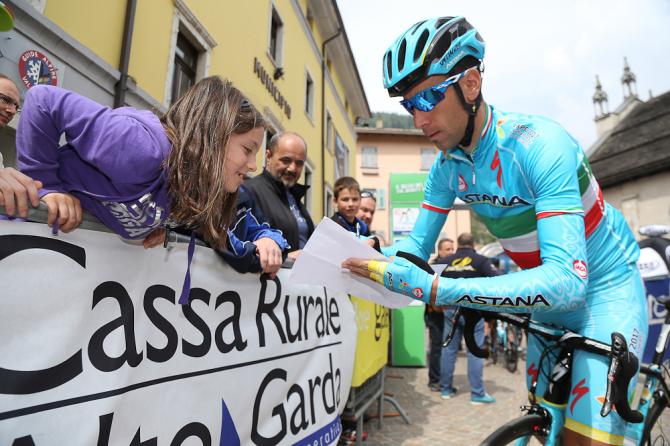
(Bettini Photo)
Now with the Giro in mind, Nibali has wintered better than he has done in some time, and the fruits of his endeavour are already evident in Oman. He seemed fretful on arrival but he has fared well in the days since, and the baleful default expression of last year has lightened. Tonight, ahead of the decisive stage to Green Mountain, he already seems to have satisfied himself that this season will be different.
Although Nibali’s laboured start to last year was a virtual mirror image of the previous campaign, it now seems to be an article of faith at Astana to blame his travails on the heavy burden of being the reigning Tour champion. “It’s normal that after you win the biggest race that there is to win, you maybe need a year to digest everything and settle back down,” says team-mate Jakob Fuglsang.
To a greater or lesser extent, the three men who preceded Nibali on the Tour’s roll of honour – Chris Froome, Bradley Wiggins and Cadel Evans – also grappled with their newfound status as de facto figureheads of the sport. There was a school of thought that Nibali, Italian cycling’s chosen one since the age of 17, might be better equipped to cope than most, but the weeks and months after his coronation would prove equally draining, the accumulated stress just as debilitating.
“In the moments after the Tour victory, something changed, and it affected me. I was already recognised quite a bit beforehand, but after the Tour, I was recognised by everybody,” Nibali says.
It is surprising to discover, however, that Nibali’s most lasting lament about his trying 2015 season is his treatment in the press, especially given the very cordial relationship he has maintained with the fourth estate throughout his career.
A man builds a substantial portfolio of goodwill when he stops to offer soundbites through chattering teeth at the end of a sodden Milan-San Remo, say, or when he emerges from his team bus to discuss, at considerable length, the evaporation of his Tour de France hopes, as Nibali did at La Pierre-Saint-Martin last July.
Human nature being what it is, there is often a dividend, and Nibali’s pay-off last year came in the form of some supportive coverage in his home country following his expulsion from the Vuelta. Yet now his dark eyes widen as he describes how he felt assailed by what he saw as undue criticism during his annus horribilus.
“Obviously, there was a heavy atmosphere last year on account of the results and morale goes down a bit because of that. But one of the factors that bothered me the most was the media. Right from the start of the season to the very end, I was massacred,” he says, mouthing the last word slowly for emphasis: “Mass-a-cra-to.”
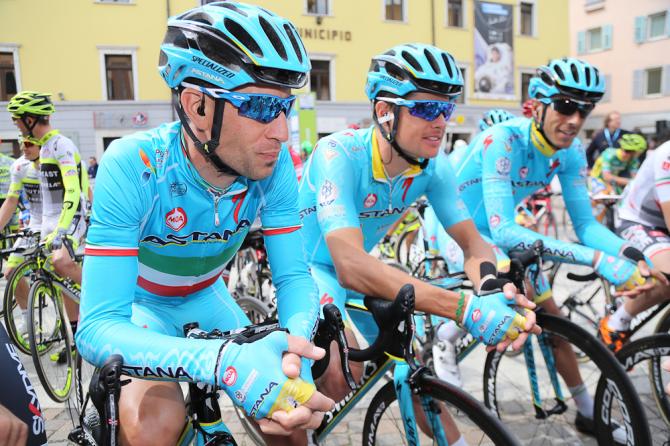
(Bettini Photo)
Considering the collateral damage to his reputation, one might expect Nibali to object most vehemently to the media furore over Astana’s spate of doping cases, which included La Gazzetta dello Sport’s weighty accusation that Dr Michele Ferrari had secretly visited the team’s training camp the previous year, a story published on the day before the UCI Licence Commission was due to render its verdict on the team’s WorldTour status.
Professional athletes, however, view the world through a different optic to the public that follows them. If Nibali is still smarting now, it seems primarily because his pride was piqued by the hammering he took for his performances on the road.
“I’m talking in general. I was bombarded by the media,” he says. “I felt very strong pressure around me, and it felt like it almost cancelled out everything I’d achieved in the years before. I’ve always been very open but because of what happened in 2015, when the press was very, very hard on me, I’ve looked to close myself off a bit as a defence.”
In practice, Nibali seems as accessible as ever, the natural reserve evened out by inherent courtesy. On occasion, however, he has displayed a sharper edge than before. When the threat of snow led to the cancellation of Tirreno-Adriatico’s toughest stage, he underlined his displeasure at RCS Sport by hinting he might skip the Giro, while in January, he raised eyebrows by lamenting that he had been flanked by the “wrong” team-mates at last year’s Tour.
The group around Nibali is more Italian this year in a bid to alleviate the apparent isolation of 2015. As if to prove the point, Michele Scarponi and Agnoli will later amble along the hotel corridor just as their leader poses for Procycling’s shoot, and sit playfully catcalling him until it finishes.
Agnoli returns to his side after two years on the margins and, injury allowing, so will Alessandro Vanotti, though Nibali defends himself against the charge that he should have had enough influence to ensure his closest riders weren’t frozen out in the first place. “It’s not like that in cycling anymore,” he says. “A leader can makes some suggestions but managers decide everything nowadays.” Nowhere more so, perhaps, than at Astana.
Vincent Wathelet carries three mobile phones, and wears at least as many metaphorical hats in his various roles as an agent and facilitator in the incestuous world of professional cycling. Dressed in an untucked white shirt, the heavy-set Belgian has one of his phones clamped to his ear as he stands just past the finish line atop Green Mountain at the end of Oman’s decisive stage, and he jabbers animatedly down the line.
Wathelet is giving running commentary of the finale on this sweltering afternoon. He stands on tiptoe as he struggles to identify the two riders inching their way up the steep final ramps, and then all but dances in excitement when he realises the man in front is wearing Astana light blue.
“He’s got it, Vino! He’s won!” Wathelet cries as Nibali grinds across the line ahead of Romain Bardet, and he continues in his rapturous account as the Sicilian is guided by his soigneur Michele Pallini towards the Astana team car at the roadside.
As soon as Nibali sinks into a deck chair to catch his breath, Wathelet toddles over and thrusts the phone to his ear. Nibali strains to listen to the voice at the other end of the line and then politely murmurs a few words of thanks. Alexandre Vinokourov may not be on the race but with this longstanding member of his entourage on hand in Oman, the Astana general manager doesn’t miss a beat.
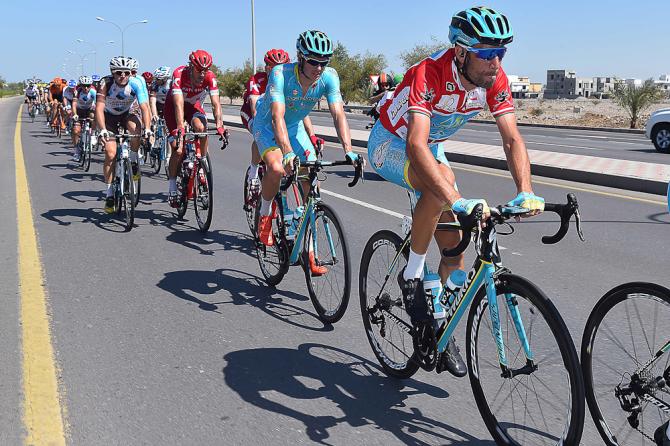
Nibali’s flying start to the 2016 season seems indicative of a man eager to make a point, even if he doesn’t see it that way. “I don’t feel like I have to prove anything,” he says. That may be the case, but the pressure to perform from within Astana – and from the very vigilant big boss – is clearly as relentless as ever, not least as his contract expires at year’s end.
The complicated relationship with Vinokourov has been a recurring theme through Nibali’s time at Astana. The rumblings of discord reached the public domain just ahead of the 2014 Tour, when it was reported that Vinokourov had sent a letter of warning to Nibali, reprimanding him for his poor results that spring.
It later emerged that Vinokourov’s bluntly-worded missive had been dispatched to every rider, and while Nibali’s subsequent Tour win diffused the tension, the wariness never dissipated. “Communication is very important and when you don’t use the right means or the right words, it can make a lot more noise,” Nibali says. “Okay, you need to give morale to the guys but in this instance it was done in the wrong way.”
Nibali and Vinokourov see relatively little of one another, with the Kazakh leaving sporting management to others, most recently Dimitri Fofonov. Yet the boss often shows up on the biggest races of the calendar. As Nibali’s Tour defence unravelled in the Pyrenees last July, Vinokourov gave him a bit of tough love. “Vincenzo needs a good mechanic because something is broken in his head,” he said.
Nibali’s features crease into a smile when asked if Vinokourov’s public persona is any different to the private one. “He’s exactly the way you see him! Just like that!” Nibali says. Vinokourov, the banned doper turned Olympic champion turned politician, is an enigma to all.
“When he says something, he’s unlikely to change his mind,” Nibali says. “He’s very respectful to us riders but if he has something to say to you, he’ll say it, whether it’s good or bad.”
By a quirk of fate, some of Nibali’s most difficult moments at Astana – the difficult build-up to the past two Tours, the exclusion from the Vuelta – have coincided with the highpoints of Fabio Aru’s young career. After back-to-back podium finishes at the Giro, Aru confirmed himself as Italian cycling’s future by winning the Vuelta, right when Nibali was at his lowest ebb last September.
The idea of an internal rivalry between the two stable-mates is an attractive one but Astana’s policy of dividing the stage racing calendar between Nibali and Aru means that they compete together sparingly, and have mainly avoided treading on one another’s toes in public. When BiciSport magazine ran a 30-page reportage on the topic last year, the central contretemps was an underwhelming one: Aru had apparently once set off on a training ride without Nibali when the Sicilian was five minutes late to the hotel car park.
“Since I turned professional, the Italian press has always tried to pair my name with somebody else’s,” Nibali says wearily. “First, it was Nibali and Visconti. Then Nibali and Riccò. Then Nibali and Basso. Then Nibali and Pellizotti. And now, well, it’s Nibali and Aru…”
That said, off the bike, the two are not particularly close, and Nibali broke from his usual diplomacy to complain to Gazzetta dello Sport in March that Aru was “often angry and short-tempered.” In theory, Nibali will ride the Tour in support of Aru this year, while the younger man will return the favour at the Olympics. In Italy, inevitably, the arrangement has already been compared to the so-called Chiavari pact between Gino Bartali and Fausto Coppi ahead of the 1949 Tour.
“For better or for worse in Italy, we’ve always seemed to live cycling through these rivalries, whether it was Moser and Saronni, or Coppi and Bartali, and so on,” Nibali says. “But this isn’t like that. We’re at two different moments in our careers, and, besides, I don’t know how well either of us will be going by the time the Olympics come around.”
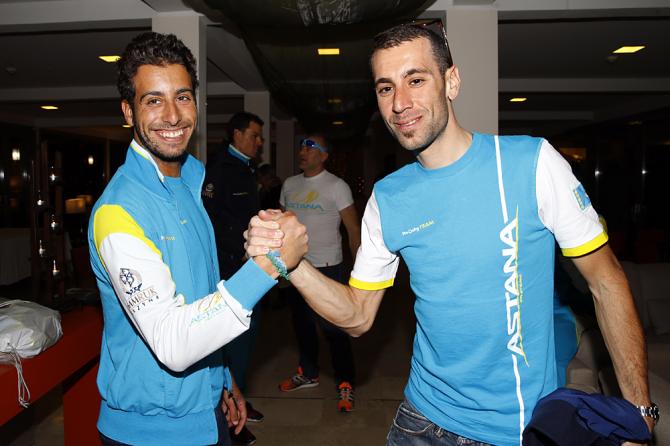
By then, Nibali might already have announced his departure. Trek-Segafredo was a keen suitor early in the year, but manager Luca Guercilena has since given up his pursuit, telling Cyclingnews in April that he believes Nibali will join a new team bankrolled by Prince Nasser bin Hamad Al Khalifa of Bahrain.
Officially, any move cannot be confirmed until 1 August, and for now, Nibali limits himself to stressing that it will not be based on money alone. He hopes men such as Agnoli, Vanotti, trainer Paolo Slongo and perhaps even Fuglsang will remain with him in 2017, at Astana or elsewhere.
Oddly for one of only six men to win all three Grand Tours in his career, Nibali has never started a three-week race with the same favourite’s status that he will carry into this Giro. Indeed, he usually thrives in the role of underdog, real or imagined. In 2013, for instance, he relished waging guerrilla warfare against Team Sky at both Tirreno-Adriatico and the Giro but seemed rather less at ease when unsuccessfully trying to fend off the surprising Chris Horner’s offensive at that year’s Vuelta.
It was hardly coincidental, either, that Nibali’s victorious 2014 Tour featured a Giro-like, treacherous opening week replete with opportunities to ambush rivals. The impression is that his best ideas, such as his surprise attack on the road to Sheffield at that Tour, are improvised on the hoof rather than formulated months in advance. Nibali agrees that his apparent reliance on instinct contrasts with the analytical approach embodied by Team Sky.
“A team like Sky maybe sets out with a certain strategy but for me, if an opportunity to attack comes up along the way – and Alberto Contador is probably like this, too – I’ll take it,” Nibali says. “I don’t even know how to explain. They’re such small moments, you sort of have to feel them. It’s not a question of tactics; it’s a question of invention.”
It’s a shame, then, that Sky’s Chris Froome, his seeming antithesis, will not be among Nibali’s challengers at the Giro, given their very public clashes at the 2015 Tour. Nibali grins at the memory of Froome storming onto the Astana bus in search of an explanation after the Italian slung a bidon in his direction during the fraught finale at Le Havre. “We’re like pressure cookers ready to explode during a race like that,” he says diplomatically.
They may yet meet at the Tour, of course, and their paths will certainly cross at the Olympic Games road race in Rio. Unlike Froome, Contador and Nairo Quintana, Nibali is the only one of the so-called ‘Fantastic Four’ who seems prepared to sacrifice the Tour in order to pursue gold in Rio, citing Paolo Bettini’s 2004 victory as his inspiration.
With each of the Grand Tours and a Monument already inscribed on his palmarès, Olympic glory would only strengthen the argument for Nibali as the most complete rider of a generation inclined to specialisation. The last of a kind, in some respects, though even at 31, he seems to have paid little thought to his legacy.
How does Vincenzo Nibali want to be remembered by posterity?
“I don’t know,” he says, after a pause. “I just race my bike because I enjoy it. That’s it, essentially.”
As simple and as complicated as that.

Barry Ryan was Head of Features at Cyclingnews. He has covered professional cycling since 2010, reporting from the Tour de France, Giro d’Italia and events from Argentina to Japan. His writing has appeared in The Independent, Procycling and Cycling Plus. He is the author of The Ascent: Sean Kelly, Stephen Roche and the Rise of Irish Cycling’s Golden Generation, published by Gill Books.